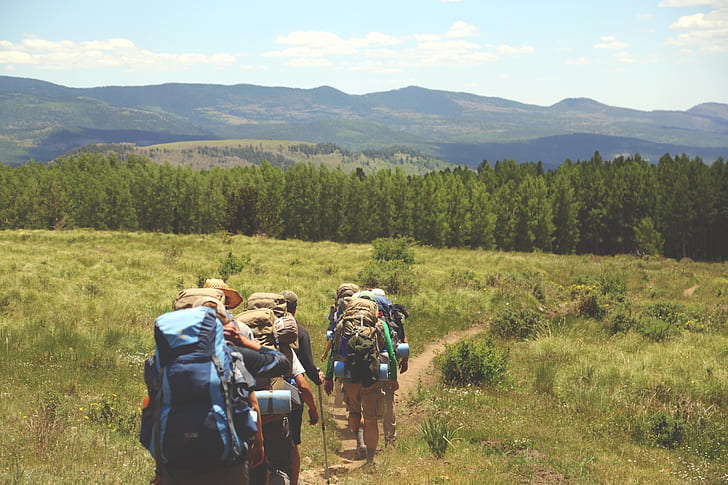Hiking trips are a great combination of adventure, a load of workouts, and a strong relationship with nature. But gear, permits, transportation, and accommodation can all mount up quickly. The good news is that you don’t have to blow the bank to get out in nature. By making thoughtful planning and strategic decisions you can plan allotment-free hiking trips that can still add to your memories but not to your spending account.
Let’s explore some practical tips to help you plan affordable hiking adventures.
1. Choose Affordable Hiking Destinations

When selecting a location, consider trails near your home or within a short driving distance to save on travel costs. Entry fees are affordable in National parks and some local trails are also free for explorations. You could make good use of such avenues.
Tip: Use apps like AllTrails or Hiking Project to discover affordable hiking trails with reviews and difficulty levels.
2. Travel During Off-Peak Seasons

Off-peak seasons often mean lower accommodation and transportation costs. Spring and fall are excellent times for hiking trips because the weather is usually pleasant, and trails are less crowded.
Bonus: Off-season travel also gives you a chance to enjoy nature’s beauty in peace.
3. Pack Smart but Minimal

Invest in essential gear rather than splurging on unnecessary items. Budget-friendly hiking trips don’t require the latest gadgets—just reliable, functional equipment.
Hiking Essentials:
- Backpack: A sturdy yet affordable option.
- Clothing: Layered outfits suitable for the trail and weather.
- Footwear: Comfortable, durable hiking shoes or boots.
- Food and Water: Carry reusable bottles and pack lightweight, non-perishable snacks like trail mix or granola bars.
Avoid buying expensive pre-packaged meals; instead, prepare your own at home.
4. Opt for Budget-Friendly Accommodation

If you’re planning a multi-day hiking trip, consider these affordable accommodation options:
- Camping: Look for free or low-cost campgrounds near trailheads.
- Hostels: Perfect for hikers who want a roof without the high price tag.
- Cabin Rentals: Split costs with friends for a cozy stay.
Some national parks offer free camping areas, so check their websites in advance.
5. Hike with a Group

Transportation, accommodation and food can grate quite a chunk from your budget. A good plan to avoid this is to travel with groups. Pooling resources can keep the accountancy of your budget in check.
Pro Tip: Join hiking groups on social media to connect with like-minded adventurers.
6. Plan Your Meals and Snacks

Food expenses can add up quickly, especially in remote areas where dining options may be expensive. To save money:
- Pack homemade meals for your hiking trips.
- Use lightweight cooking gear to prepare meals on the trail.
- Stock up on affordable, energy-packed snacks before leaving.
Reusable containers and utensils can help you reduce waste while staying budget-friendly.
Also Read: Budget Accommodation for Families: Kid-Friendly Options in Australia
7. Avoid Extra Fees

Learn about our destination, if not in detail, just enough to get you across the necessary and unpreventable expenses. Look for information about parking, permits, or guide fees. Opt for self-guided hiking trips when possible to save on hiring a guide.
8. Use Free or Low-Cost Resources

- Maps: Download free trail maps from park websites or apps.
- Gear: Borrow gear from friends or rent equipment instead of buying new.
- Transportation: Use carpooling apps or public transportation to reach your destination.
Bonus Tip: Some outdoor stores offer gear rentals at discounted rates for members.
9. Stay Safe and Prepared

Your safety mustn’t come above your money. Make sure you invest good money into purchasing first aid medical supplies, navigation tools and other important amenities that you cannot spend your days without. Note the weather reports and be familiar with our itinerary.
10. Embrace the Simplicity of Hiking Trips

When you are on the trails of the slopes, forget about anything that could plague or compete for your attention. Focus on the hiking trips and enjoy their simplicity.
Hiking trips on a budget are about finding adventure without paying too much. By preparing well in advance and planning what you’re navigating to, where you’re heading, what gear you’ll need (or won’t need), how you’ll get to it, and where you’ll be staying when you arrive, you can have amazing hikes without busting the budget. The trick is to choose experiences over expenses and use what you have already.
No matter if you are a local or venturing into remote wilderness, hiking trips are a perfect opportunity to experience and regenerate your spirit through nature especially when you’re with your family. With these tips you are set to plan an inexpensive yet enriching adventure.



